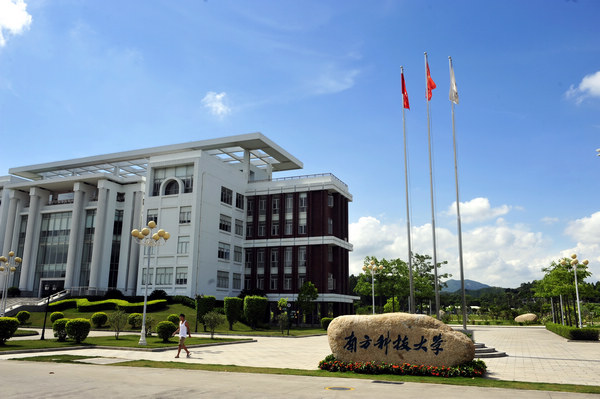 |
|
|
|
|||||||||||
A university with an innovative philosophy of education in Shenzhen, Guangdong province, has won official recognition from the Ministry of Education, getting one step closer to its bid for autonomy in student enrollment and overall management.
According to a statement released on the ministry's website on Tuesday, the ministry officially approved the establishment of South University of Science and Technology of China, which has a capacity to enroll 8,000 students.
|
 |
|
Widely recognized as a pioneer in education reform in China, South University of Science and Technology of China was established in 2009 in the Nanshan district of Shenzhen, Guangdong province. Liang Xu / Xinhua |
The university made headlines when - as yet unauthorized - it admitted the first batch of 45 students who took the university's own set of exams in early 2011 instead of the national college entrance examination in June.
Zhu Qingshi, the university's president, said the approval is good news and the university can further its higher education experiment on a legal footing.
"Time is very tight to arrange this year's enrollment. The university is working on a plan and will submit it to the Ministry of Education for approval," Zhu said.
Last year, its enrollment plan received approval on Jan 10, only seven weeks ahead of the scheduled beginning of the semester on March 1.
The university is required to follow the ministry's regulations when it considers adding new courses and making other adjustments to its curriculum, said the statement.
The ministry encouraged Guangdong and Shenzhen to increase investment in new campus construction and complete basic facilities within three to four years.
The university, widely recognized as a pioneer in education reform, was established in 2009 in the Nanshan district of Shenzhen with an estimated investment of nearly 2.5 billion yuan ($395 million), sponsored by the Shenzhen government.
Different from common practice in China, where the central government or local authorities appoint university presidents, the university has a board of directors for such policymaking. The board has the right to examine and approve the university's management, financial reports and development plan, according to regulations enacted by the Shenzhen government in July 2011.
The 20-member board of directors includes government representatives, the university president and management team, faculty and leading members of society.
Zhu, a chemist and member of the Chinese Academy of Sciences, aims to build a research-intensive university to produce innovative talent and bring in world-renowned faculty members, following the examples of the California Institute of Technology, Rockefeller University and Hong Kong University of Science and Technology.
The university intends to grant its own academic diplomas, against the rule that university degrees are awarded by the State Council.
Zhu recognized that it will take decades for the university to qualify for postgraduate and doctoral programs under current policies in China.
He wrote an open letter to the parents of his prospective students, asking for their support and trust in the university to help every talented student thrive and succeed in an environment with academic autonomy and no bureaucracy.
The students pay no tuition and are given scholarships of 10,000 yuan a year to cover their living expenses.
Xiong Bingqi, deputy director of the 21st Century Education Research Institute, a non-governmental policy research organization, said the university may fall back into the administrative grip of education authorities and gain no more autonomy than other public universities when it has to seek approval for curriculum and enrollment.
Contact the writers at [email protected] and [email protected]

|

|

|

|

|

|